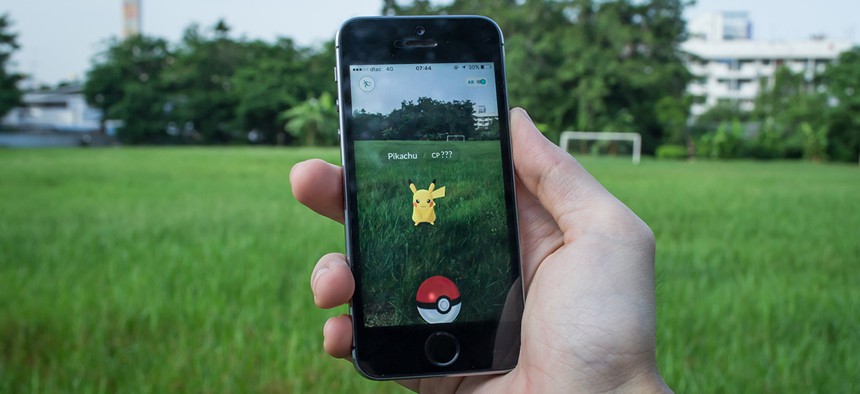Can Augmented Reality Save Jobs?

Wachiwit/Shutterstock.com
Senators at a congressional hearing seemed to think so.
It's not often senators discuss Pokemon during a congressional hearing.
But earlier this week, many were focused on Niantic, the company that created the wildly popular game "Pokemon Go" that allows users to catch virtual specimen by using their smartphone cameras in the physical world.
Niantic chief executive John Hanke, along with a handful of other tech executives, testified on Capitol Hill yesterday about augmented reality: a term denoting technology that superimposes virtual elements on the real world. Augmented reality is different from virtual reality, which is designed to make the user believe they're somewhere else.
During a commerce committee hearing Wednesday, Sen. Roger Wicker, R-Miss., asked witnesses if the same technology that underlies Pokemon Go and other games could be used to create or replace vocational jobs, such as welding.
Brian Mullins, chief executive of tech company DAQRI that sells a smart helmet, with a heads-up display for the wearer, said that product could help people understand complex tasks by outlining them visually in front of their eyes.
"The opportunity here is actually not just to create jobs but to improve the concept of worker portability," he said. With augmented-reality based training, workers whose skills "may not be relevant anymore" could "enter the workforce in a very productive way in a dramatically shorter period of time.”
Sen. John Thune, R-S.D., argued during opening remarks that factory workers might use an augmented reality display to help them assemble parts, or an EMT could receive real-time instructions about how to stabilize a patient. Thune advised against a strict regulatory approach to augmented reality, which he said risked stifling its development.
The discussion touched on cybersecurity; Hanke noted Niantic has encountered many instances of "hacking," in which "individuals and groups around the world try to access our servers, try to steal our intellectual property” or build applications that can draw information from the app, he explained. "We often feel we are out here alone in trying to fend off those attacks."
Sen. Bill Nelson, D-Fla., asked if today's hackers could infiltrate displays. On an airplane, he mused, could a hacker make a "digital flock of birds if you’re using AR in the cockpit as if they were flying through the windshield of the airplane?"
As technology improves, Mullins said, "the simple answer is yes."
"The underlying question about the security of augmented reality is a very serious question that applies to technology in general," he added. "There will certainly be new opportunities with augmented reality for exploitation by bad actors."





